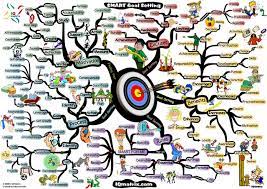13 Tips – How to SEO for Keyword Research Successfully
We may earn money or products from the companies mentioned in this post.
Updated on 31 March 2025

Welcome to your go-to guide on mastering SEO for keyword research! In this article, you’ll discover simple yet effective strategies to find the right keywords that drive traffic to your website.
Whether you’re new to SEO or looking to improve your skills, this step-by-step approach will help you boost your site’s visibility on Google and attract the right audience.
Let’s explore the essentials of successful keyword research and how to apply them to enhance your content’s search ranking.
How To SEO For Keyword Research Successfully with Jaaxy by Wealthy Affiliate
Affiliate marketing keyword research is essential for driving traffic and increasing conversions.
In this article, we’ll answer key questions about SEO keyword research and how it can benefit your affiliate marketing efforts.
Keywords play a vital role in optimizing your eCommerce site and developing content ideas for blog posts.
Conducting thorough keyword analysis not only helps you discover the right keywords but also sparks new ideas to enhance your strategy.
For those new to SEO, finding the right keywords can be challenging, but with the right approach, it becomes much easier.
1. How to do Keyword Research Successfully
Keyword analysis is the process of uncovering the exact Google queries that your target audience uses to find information online.
These search terms can be incredibly insightful because they give you a direct window into your audience’s interests, pain points, and desires.
When you know what your potential customers are searching for, you can create content that directly addresses their needs.
By analyzing these search phrases, you can shape your content strategy and overall marketing efforts.
Instead of guessing what topics might resonate, you can rely on actual data.
For instance, if a lot of people are searching for “best organic skincare products,” it would make sense to create content around that topic if it fits your niche.
At its core, online research is driven by keywords.
Whether a person is looking for how-to guides, product recommendations, or just basic information, they begin their journey with a search query.
The better your content aligns with those search terms, the more likely it is that Google will rank your pages higher.
This is how effective keyword analysis can help bring more visitors to your website—your content becomes the solution they were already seeking.
That’s where targeting the right searches becomes essential.
You’re not just aiming to get any traffic, but qualified traffic—people who are genuinely interested in your content, products, or services.
This focus is what inbound marketing is all about.
Instead of creating content based on what we, as business owners, think is important, we create content based on what our audience is actively looking for.
This makes your marketing efforts more aligned with user intent, leading to higher engagement, conversions, and overall success.
The very first step in this process is effective keyword research.
Tools like Jaaxy, for example, can help streamline this process by providing data on search volume, competition, and keyword difficulty.
Jaaxy insights make it easier to discover high-potential keywords and build your strategy around them.
In summary, keyword analysis is the backbone of any successful SEO and content marketing strategy.
When you focus on the keywords that your target audience is already using, you create a more effective approach to driving traffic and achieving your online marketing goals.
Keyword research benefits include:

2. Market Trends
Effective keyword research is crucial because it allows you to tailor your content to meet the specific needs of your audience.
When done right, it not only improves your search engine rankings but also ensures that your content speaks directly to what people are actively searching for.
When you know the exact phrases your audience uses, you can strategically incorporate these keywords into your content, helping Google recognize your pages as relevant to user searches.
This increases the chances of your content appearing in search results, driving more organic traffic to your site.
Beyond just targeting keywords, effective research helps you understand user intent.
Who Are They Looking For?
When you know why users are searching for specific terms, you can create content that better satisfies their needs—whether it’s a blog post, product page, or tutorial.
Additionally, keyword research can uncover gaps in your current content strategy.
You might discover long-tail keywords (more specific, niche phrases) that have lower competition but are still highly relevant to your business.
These keywords can be a goldmine for generating traffic because they often signal a more focused user intent, meaning users are closer to making a decision or purchase.
In essence, targeted keyword research leads to more than just traffic—it leads to the right kind of traffic.
You’re connecting with users who are more likely to engage, convert, or share your content.
3. Rising traffic

Rising traffic is one of the most immediate benefits of using the proper keywords in your content.
When you target the right search terms—the ones your audience is actively using—your content becomes more visible on search engine results pages (SERPs).
This visibility is key because users tend to click on the top-ranking results, and proper keyword optimization can help you land in those coveted positions.
When your website appears for relevant search queries, you naturally draw in more visitors who are looking for exactly what you offer.
This leads to higher organic traffic, which is one of the most valuable types of traffic you can generate.
Unlike paid ads, organic traffic doesn’t require a constant financial investment, and the effects are long-lasting.
Using the right keywords also means you’re attracting qualified traffic.
These are people who are specifically interested in your products, services, or information, making them more likely to engage with your site.
The more relevant your content, the higher chances visitors stay longer, explore more, and take desired actions like subscribing, purchasing, or sharing.
Another important point is that targeting long-tail keywords—those more specific, less competitive phrases—can help you get traffic more quickly.
While short, broad keywords like “shoes” may have high search volume, they’re also highly competitive.
Long-tail keywords, such as “best running shoes for flat feet,” may have lower search volume but are more likely to drive engaged visitors to your site who are ready to make a decision.
Choosing and strategically using the right keywords can boost your rankings, increase traffic, and attract loyal customers.
4. Acquiring Customers

Acquiring customers through SEO is all about understanding the needs of your audience and positioning your business as the solution.
If your company offers products or services that appeal to other business professionals, using the right keywords can help drive qualified leads who are ready to make purchasing decisions.
However, it’s not just about finding the most popular keywords—it’s about aligning your content with the search intent behind those phrases.
Keyword Research: 3 Must-Haves for Customer Attraction
- popularity
- search volume
- intent

1. Popularity
This is the frequency with which a keyword is looked up.
Popular keywords tend to have high competition, but they can also drive a significant amount of traffic if you rank for them.
However, focusing solely on popular keywords may not always be the best strategy.
Instead, consider niche or long-tail keywords that are directly related to your products or services.
These often have lower competition and can attract a more targeted audience, leading to better conversion rates.
2. Search Volume
Search volume indicates how frequently a keyword is searched each month.
While high search volume keywords might seem like the obvious choice, they can be highly competitive.
On the other hand, keywords with moderate or low search volume can be valuable if they are more specific and directly aligned with your business offerings.
Target “best project management software for small businesses” over “project management software” to attract more relevant traffic when selling specialized software for project management.

3. Search Intent
Search intent is perhaps the most critical factor in acquiring customers.
Google’s algorithms have advanced beyond simply matching exact keywords; they now prioritize understanding the intent behind the search query.
Is the user looking to buy, learn, or compare products?
By analyzing search intent, you can tailor your content to match what users are actually looking for, whether it’s an informational blog post, a product comparison, or a purchase page.
This increases your chances of converting visitors into customers because you’re providing exactly what they need at the right stage of their buying journey.
If users often compare tools while searching for “enterprise CRM solutions,” consider creating comparison guides or reviews to meet this intent.
If they’re ready to buy, content like “special offers on enterprise CRM software” may be more appropriate.
The key is to understand where users are in the buying process and create content that moves them closer to making a purchase.

Google’s Shift Away from Exact-Match Algorithms
As Google’s algorithms have become more sophisticated, the search engine no longer relies on exact-match keywords.
This means you don’t need to use the exact search phrase in your content for it to rank.
Instead, Google looks for semantically related keywords and phrases, as well as the overall context of your content, to determine its relevance.
This allows you to create more natural, user-friendly content that still captures relevant search traffic without keyword stuffing.
By focusing on search intent and creating content that answers your audience’s specific questions or needs, you can effectively acquire customers who are looking for the solutions your business offers.
Ensure your content, including blog posts, product pages, and testimonials, aligns with keywords and topics searched by potential customers to drive traffic.

5. Keywords vs. Topic
Over the past decade, SEO has indeed evolved, and the focus has shifted from simply stuffing keywords into content to a more holistic approach based on topics.
While keywords are still important, search engines like Google have become much better at understanding context, intent, and overall content quality.
This shift means that targeting broad topics rather than just individual keywords is now a key part of successful SEO strategies.
In the past, SEO used to be heavily focused on exact-match keywords.
Website owners would try to rank for specific phrases by including them repeatedly in their content, even at the expense of readability.
However, with advancements in Google’s algorithms—like RankBrain and natural language processing—search engines now understand context.
They don’t just look for specific words; they look for how the words relate to each other within a broader topic.
Your content should cover all aspects of running shoes, including types, benefits, materials, and more, rather than just focusing on specific keywords.
However, this doesn’t mean keywords are irrelevant. Keywords still serve an important purpose.
They aid in the comprehension of your material by search engines and enable them to match it with pertinent queries.
The difference now is that keywords should be used as part of a larger strategy that focuses on answering questions, solving problems, and addressing the needs of your audience.
SEO experts today use keywords to guide content creation, ensuring that the content covers a topic thoroughly and satisfies user intent.
In other words, while specific keywords are no longer the sole focus, they still play a role in defining the scope of your content.
Think of keywords as building blocks within a larger framework of related topics.
Instead of repeating a keyword for the sake of ranking, you should focus on the keyword’s goal—what problem or question are users trying to solve?
Once you understand that, you can craft content that addresses the keyword but also dives deeper into the topic, giving users a more complete, satisfying experience.
This strategy not only helps your content rank better but also ensures it remains useful and relevant to readers, which is the ultimate goal of any successful SEO effort.

6. Keyword Research: Still Relevant? (You Bet!)
There’s been a lot of talk about how keyword research is becoming outdated.
Some say with the rise of AI, voice search, and smarter algorithms, focusing on keywords is a thing of the past. But, is that really true? Not quite.
In reality, keyword research remains as relevant as ever, and here’s why:
1. User Intent is Still King
When someone searches online, they do so with a purpose. Whether they’re looking to buy a product, get information, or solve a problem, the words they type into Google reflect what they want.
Keyword research helps you understand that intent. It’s not just about knowing what people search for—it’s about understanding why they’re searching.
By analyzing keywords, you can create content that directly meets the needs of your audience.
2. SEO Without Direction is Like a Ship Without a Rudder
Imagine trying to rank a website without knowing what terms people are searching for. It would be a guessing game!
Keyword research gives you a clear path, guiding your content strategy so you’re not just throwing random ideas out there and hoping something sticks.

How Do You Know You’re Doing It Right?
This is where many people get stuck.
There’s more to keyword research than just picking out a few terms and sprinkling them across your content.
You need to find the right balance between relevance, search volume, and competition. High search volume is great, but if the competition is too stiff, you’ll struggle to rank.
On the other hand, a keyword with no competition but very few searches won’t drive traffic either.
Adapt SEOs employ keyword research as a foundation. It helps them understand what their audience needs and how to structure their content accordingly.
You can use tools like Google Keyword Planner, Ahrefs, or SEMrush to find relevant keywords.
Start with broader terms, then narrow down to long-tail keywords (more specific phrases) that have a more targeted intent and are easier to rank for.
For that reason, we penned this text with some pointers to guide you through the process. Keep in mind that keyword research is about finding opportunities that fit your site’s strengths.
Track your rankings, analyze competitors, and most importantly, always keep the user in mind.
Why Would You Want to Do a Keyword Study?
If you’re looking to grow your online presence, understanding what your audience is searching for is critical.
This is where keyword research comes into play. But what exactly does it offer, and why should you make it a priority?

Find Out What Keywords Your Audience Searches For
Knowing the keywords your audience uses helps you get inside their heads.
What are they typing when they’re looking for solutions? Whether it’s a question, a product, or a service, keyword research reveals the exact phrases they use to search.
This is a direct window into their intent and needs, helping you create content that speaks directly to them.
Keyword Brainstorm: Win Big!
A good keyword study starts with brainstorming.
Consider the terms that are most relevant to your website, your industry, or even your geographical location.
If you’re a business targeting a local audience, regional terms are key.
For example, a real estate agent in Sydney would benefit from terms like “houses for sale in Sydney” or “best real estate agents in Sydney.”
By including local keywords, you can capture search traffic from users who are specifically looking for services in their area.

Tools for Search Volume: Google, Conductor, SEMrush
There are powerful tools that can make keyword research more data-driven.
Google Keyword Planner, Conductor Searchlight, and SEMrush are a few options that help you analyze the search volume for different keywords.
This data shows you how often specific terms are being searched, allowing you to focus on high-value keywords.
It’s important to find a balance between search volume and competition.
High-volume keywords can bring traffic, but they may also be more competitive, whereas lower-volume, niche keywords might be easier to rank for.
Keyword Research is Crucial for a Better Website or Online Presence
What Are the Advantages of Researching Keywords?
The major benefit of keyword research is that it allows you to align your content with what people are actually searching for.
Instead of guessing or creating content blindly, you can make informed decisions.
This boosts your chances of being found online, whether you’re selling products, offering services, or simply trying to increase blog traffic.
Client Search: What & How
Understanding how clients search is essential to capturing their attention.
Are they using broad search terms, or are they asking specific, detailed questions?
By looking at these patterns, you can adjust your website’s content to match their intent.
For instance, someone searching “best fitness equipment” might be exploring options, while “buy treadmill under $500” indicates a strong purchasing intent.
Knowing this helps you create targeted content for different stages of the buyer journey.

Adjust Your Website and Create Digital Content
Keyword research isn’t just for blog posts or landing pages—it can help you rethink your website’s structure too.
Once you understand how people search, you can reorganize your website to make it more SEO-friendly.
Consider adding new keyword-targeted pages, refining navigation with relevant terms, and optimizing internal linking for better Google crawling.e.
The end result is a more user-friendly, search-optimized website.
Trending Searches: Your Website’s Secret Weapon
The most popular search terms in your industry are like gold for your marketing strategy.
These are the terms that your competitors are likely targeting as well, so knowing them gives you insight into what content you need to compete.
Incorporating these popular keywords into your website helps increase visibility in search results, which is key to driving organic traffic.
Know What Users Are Typing to Get Found on Google
Google’s algorithms are smart, but they still rely heavily on keywords to understand the relevance of your content.
If you want Google to recommend your site to users, you need to be speaking the same language as your audience.
This means researching the exact phrases they’re typing and integrating them naturally into your content.
The better you align with user search behavior, the more likely Google will be to rank your site higher in search results, delivering the right users to your page.
By diving deep into keyword research, you can create a website and content that truly aligns with what your audience is looking for, helping you rank better and attract more targeted visitors.

7. Doing a Keyword Search
Performing a keyword search is one of the most important steps to optimizing your website.
Think of it as laying the foundation for all your SEO efforts.
Without knowing what your potential audience is searching for, you’re essentially missing out on valuable opportunities to connect with them.
A Keyword Study Can Help You Optimize Your Website
A keyword study is the backbone of a well-optimized website.
When you know the right words or phrases that your audience is using, you can strategically integrate them into your content, headers, meta descriptions, and URLs.
This optimization is crucial if you want search engines to recognize your site as relevant and useful to users.
Your dessert blog or ice cream site may not be visible when people search for “chocolate ice cream” on Google.
Perhaps the competition is using that keyword more effectively, or maybe you haven’t optimized for the exact phrases people are using.
Through keyword investigation, one can discover popular search phrases such as “best homemade chocolate ice cream recipe” or “where to buy vegan chocolate ice cream near me.”
Equipped with this understanding, you can modify your content to incorporate more focused, pertinent keywords that will draw attention to your website.

Keyword Research Helps Target Your Content
Simply having content isn’t enough—you need targeted content. Keyword research allows you to focus on the topics and phrases that are driving traffic in your niche.
It guides you in creating content that not only provides value but also matches user intent.
For example, if you’re writing a page about chocolate ice cream, you might discover that people are more interested in “easy chocolate ice cream recipes without an ice cream maker.”
That’s a huge insight! Now you can craft a page specifically addressing that need, increasing your chances of attracting the right visitors.
“Y What?” When Establishing a Page About X, Ask, “Where Can I Acquire X?
To further illustrate the importance of keyword research, think of it like this: when you’re setting up a new page about a product or service, ask yourself, “Where can people acquire this product or service?”
Stated differently, what queries are people posing and how can you address them?
If people are searching for “best online chocolate ice cream stores,” your website needs to directly respond to that question.
By structuring your content around these search terms, you position yourself as the go-to solution, which can drive traffic and increase conversions.

Use Keywords to Attract Clients and Boost Revenue
The ultimate goal of keyword research is to attract clients, generate leads, and make money.
When you optimize your website using the right keywords, you’re not just bringing random visitors to your site—you’re bringing in people who are actively looking for what you offer.
These are the people most likely to become leads and customers.
The more tailored your content is to their search intent, the more likely they are to engage with your site, sign up for your services, or make a purchase.
In short, doing a keyword search is the key to unlocking your website’s full potential.
It ensures that your content is aligned with what people are searching for, helping you attract the right audience and ultimately growing your business.
8. Ways to Get Better at Keyword Research
Ways to Get Better at Keyword Research
Now that you’ve reached this point, it’s clear that understanding how to research keywords is essential for improving your SEO strategy.
But keyword research isn’t a one-and-done task—it’s a skill that can be continuously refined.
How then can you improve at it? Let’s explore a few key strategies to level up your keyword research game.

1. Understand Your Audience’s Search Intent
Often by identifying keywords of Pretense, you will receive a starting point, but entertainment for the purpose of this search process is actually differentiated.
Understanding both the sort of term and people’s motivations is crucial. Are you ready to buy, information or evaluate the options? This really creates a long -term connection.
Search intent falls into four categories
informational (looking for knowledge), navigational (finding a specific website), transactional (ready to make a purchase), and commercial investigation (researching before buying).
When you can match your content to the right intent, you’ll attract the right kind of visitors.
If your content is primarily informational, for example, focus on keywords that signal curiosity or problem-solving, like “how to” or “best ways to.”
2. Use Long-Tail Keywords to Tap Into Niche Audiences
Long-tail keywords are more specific phrases with lower search volumes, but they often have less competition and higher conversion rates.
If you’re targeting competitive industries, long-tail keywords can help you rank for niche topics and attract a more targeted audience.
For example, instead of optimizing for “shoes,” aim for something more specific like “comfortable running shoes for flat feet.”
Long-tail keywords are especially useful for new websites that need to build authority over time.
3. Analyze Competitor Keywords
One of the fastest ways to improve your keyword research is by studying what’s already working for your competitors.
Tools like SEMrush, Ahrefs, or Moz allow you to spy on competitor websites and see what keywords they’re ranking for.
This doesn’t mean you should copy them, but it’s a great way to discover keywords you may have missed or spot gaps in their strategy that you can capitalize on.
4. Refresh Your Keyword List Regularly
Like search trends, your keyword approach should also evolve. What was beneficial a year ago might not be so this time.
Make a habit of reviewing and refreshing your keyword list regularly—every few months is a good benchmark.
Look for new trends, seasonal keywords, or changes in your industry that could influence what people are searching for.
Staying updated ensures that you’re always targeting the most relevant and high-value terms.

5. Use Multiple Tools to Cross-Check Data
No single keyword tool is perfect. To get a more accurate picture of search volume, competition, and keyword opportunities, use a combination of tools.
Google Keyword Planner, Ubersuggest, Ahrefs, SEMrush, and Moz Keyword Explorer all have different strengths.
Cross-checking data from multiple tools helps you avoid relying on one set of numbers and gives you a broader view of your keyword landscape.
6. Related Searches: Your Next Keywords
When you perform a Google search, take note of the related searches and “People Also Ask” boxes that appear on the results page.
These can provide valuable insights into what users are searching for and the questions they’re asking.
Incorporating these into your keyword research can help you find new content ideas and refine your strategy to target more user-friendly, conversational keywords.

7. Monitor Your Performance and Adjust Accordingly
Finally, keyword research doesn’t stop once you’ve optimized your content. It’s essential to track how your chosen keywords perform over time.
Tools like Google Analytics or Search Console allow you to monitor keyword rankings, organic traffic, and click-through rates.
If certain keywords aren’t performing as expected, don’t be afraid to tweak your content or explore alternative phrases.
Constantly refining your approach is what will ultimately lead to better results.
By mastering these techniques, you’ll get better at keyword research and create more targeted, effective content.
Remember, it’s not just about finding the right keywords—it’s about understanding your audience, refining your strategy, and continually optimizing based on results.
9. Google Keyword Planner
SEMrush and Conductor Searchlight are great alternatives to Google Keyword Planner that offer many tools to improve your keyword research.
Top Search Terms. You may have to spend hours searching for the “perfect” word or choosing random words. Just focus and be creative.
What do you want a keyword profile to show you?
When building a keyword profile, you want it to give you a clear snapshot of the key information that will guide your SEO strategy. Ideally, a strong keyword profile should show:
- Search Volume: How often people search for a particular keyword. This helps you prioritize terms that have the potential to drive significant traffic.
- Competition Level: How difficult it is to rank for that keyword. You’ll want a balance between high traffic and lower competition for the best results.
- Keyword Relevance: How closely a keyword aligns with your content, product, or services. The aim of your audience should be reflected in the keywords you select.
- Cost-Per-Click (CPC): If you’re planning to run ads, knowing the CPC will help you budget effectively and target keywords that are cost-efficient.
- Trends and Seasonality: Some keywords spike at certain times of the year. A keyword profile can help you spot trends and plan your content accordingly.
- Keyword Intent: Does the keyword indicate someone is researching, ready to buy, or just browsing?
Understanding search intent can help you craft content that speaks directly to where the user is in their journey.
A well-rounded keyword profile offers a complete picture that enables you to make informed, strategic decisions about which keywords to target and how to structure your content around them.

10. Search goal
Search intent is more important than just looking at monthly search volume.
While it’s tempting to choose a keyword based on how often it’s searched, you need to dig deeper into why people are searching for that term.
A keyword might have a high search volume, but if the intent behind the search doesn’t match what your website offers, it won’t drive meaningful traffic.
When selecting a keyword, it’s essential to consider its search frequency, but don’t stop there.
A high search volume doesn’t guarantee success if your website isn’t showing up on the first or second page of Google results.
In fact, most users won’t go beyond those top results, making your position in the rankings far more critical than the raw numbers.
Understanding search intent is key.
Ask yourself: Why This Keyword?
Are they looking for information, trying to make a purchase, or simply browsing for options? It’s critical to align your content with the goal of the searcher.
For example, if the intent is transactional (someone ready to buy), your content should provide a clear call to action and demonstrate why your product or service is the best choice.
Before you commit to a keyword, take the time to compare your potential ranking for that keyword against the results Google already displays. Look at the websites that dominate the first page.
Who are you competing with?
What type of content are they offering?
This analysis gives you insight into whether you can realistically rank for that keyword or if you need to adjust your strategy.
Your content needs to answer the search query better than your competitors’.
That means not only providing useful information but also structuring it in a way that’s engaging, clear, and aligned with what users are expecting when they land on your page.
Consider targeting a less competitive keyword that still aligns with audience needs if top-ranked pages are performing well.
In the end, choosing the right keyword is about balancing search volume, competition, and—most importantly—search intent.
If you can nail all three, you’ll be in a strong position to rank well and attract the right kind of visitors to your site.

11. Look at your competitors
If you’re not sure which keywords to target, checking out what your competitors are ranking for is a great place to start.
Analyzing the keywords they’re ranking for can give you valuable insight into what’s working in your industry and where potential opportunities lie.
Not only will this help you find relevant keywords, it’ll also give you insight into what your audience is already searching for.
Google Keyword Planner is a simpler tool than SEMrush and Conductor Searchlight when it comes to quickly identifying competitive keywords.
It’s free and designed primarily for Google Ads, but it still provides useful keyword information for SEO purposes.
You can use this to see what keywords your competitors are bidding on and get a general idea of the terms that are important in your niche.
However, if you want to dive deeper into competitor analysis, tools like SEMrush and Conductor Searchlight offer advanced features.
You can view competitors’ top keywords and monitor ranking changes to spot trends and new opportunities.
They provide detailed data on keyword difficulty, search intent, and gaps in your competitors’ content strategies.
This data can assist you in outperforming competitors by analyzing their keywords to enhance existing strategies.
You may discover target keywords you hadn’t considered, or you may discover opportunities to create deeper, more valuable content that could rank higher on that page.
So if you’re looking for a quick and easy overview, Google Keyword Planner is your best option.
However, if you want a more detailed, full-on competitor analysis, SEMrush or Conductor Searchlight can help you get a competitive edge on your keyword strategy.

12. Google Keyword Planner
First, use Google Keyword Planner to gain a strategic advantage on your competitor’s site.
Enter your competitor’s domain and it will give you keyword ideas based on the keywords they are already ranking for and other information in Google’s database.
This approach will give you a powerful insight into what is driving traffic to similar sites, which will help you identify valuable keywords.
It’s important to note that this isn’t just about boosting your domain name.
The power lies in targeting the right niche.
Google Keyword Planner provides keyword suggestions for all types of websites, including eCommerce platforms.
You can see which search terms are driving traffic to your pages and use that data to fine-tune your own SEO strategy.
This is a simple yet effective way to stay ahead of the competition.
Instead of guessing which keywords will work, you can learn directly from keywords that have already proven effective in your industry.
Using these ideas, you can create more relevant and targeted content and increase your chances of ranking higher in search results.
Using Google Keyword Planner in this way also helps you ensure that the keywords you are targeting are not only relevant but competitive and aligned with your business goals.
This ultimately helps your content, product or service stand out, rank higher in searches and drive more traffic to your site.

13. Use Google to look for something Seriously
It may seem obvious, but using Google’s own tools and features is one of the smartest ways to rank higher on the platform.
Once you start doing keyword research and seeing where your site is showing up in search results, you’ll gain valuable insight into what’s working and what needs improvement.
Google’s search engine results pages (SERPs) are more than just a list of links.
They tell you a lot about what users are searching for and what types of content are ranking highest. Before you start creating content, check out Google Suggest.
This feature, which provides autocomplete suggestions as you type, is a goldmine for discovering long-tail keywords—more specific phrases that can drive targeted traffic to your site.
This is one of the best places to start looking for keywords that match what real users are searching for.
Another great resource is Google’s People Also Ask section, which shows you related questions that users are interested in.
This gives you a clear understanding of what your audience is asking and gives you the opportunity to create content that directly answers those questions.
This will not only help you rank for your original keyword, but it will also open up opportunities to rank for multiple related keywords.
Once you’ve found a great keyword, don’t stop there. Think about how you can include similar or related terms in the same content.
This will improve your SEO by covering different variations of your target keyword and capturing a wider range of searches.
If your keyword is “dog training tips,” for instance, you may add phrases like “dog training tips,” “dog training methods,” or “effective dog training techniques” in your content.
As a result, your page will rank higher for more than one search, increasing your visibility in all search results.
Utilize Google’s tools and analyze SERP to create high-ranking content that attracts relevant traffic.

Targeting Synonyms
Targeting synonyms and related keywords can significantly improve your search engine rankings and reach.
Including variations and synonyms alongside your primary keyword helps capture diverse searches relevant to your audience.
Including related terms such as “best ground coffee” alongside your target keyword “coffee roaster” can boost your visibility across various search types.
These related phrases are less competitive than the most popular long-tail keywords, but they’re still highly relevant to your content.
Including these variations will help you avoid putting all your eggs in one basket with one keyword.
Instead, you can diversify your SEO strategy by increasing your ability to rank for multiple search terms.
This strategy is especially useful when users search for products or services in different ways, depending on their specific needs or stages of the buying process.
Using questions in your content can boost visibility, as users often search in question format, evident from Google’s People Also Ask section.
Consider adding queries like “What’s the best ground coffee?” or “Where can I buy ground coffee online?” in addition to targeting keywords such as “ground coffee.”
This aligns with consumers’ natural search queries and increases the likelihood that your content will appear in prominent question boxes on search engine results pages (SERPs).
If you’re not sure which keywords to use, asking questions can add valuable variety.
To boost rankings and attract customers, use related terms like “best coffee grounds” or “how to roast coffee beans” alongside your main keyword “coffee roaster.”
By using synonyms, keywords, and questions, you can improve your search ranking and get featured in various Google search results.
By using a thorough keyword strategy, your content will be more visible in search results, enhancing overall performance and reaching a broader audience.
Pros:
- Clear Value Proposition: The message effectively highlights the key benefits (free domain, WordPress setup, support, and training), making it easy for the reader to understand what they will receive.
- No Commitment Required: Mentioning “No credit card is required” reassures potential users that there’s no financial risk involved upfront, which can increase sign-up rates.
- Instant Access: Offering instant access provides a sense of immediacy, appealing to users who are ready to start right away.
- Earning Potential: Including the potential to earn commissions adds a financial incentive, making the opportunity more appealing to individuals interested in monetizing their efforts.
- Simple and Professional Tone: The message is straightforward and professional, clearly outlining the offer without overwhelming the reader with unnecessary details.
Cons:
- Lacks Detailed Information: While the message is concise, it may leave some readers wanting more specific details about the program or the earning potential before they act.
- Limited Emphasis on Training Quality: The basic training mention could be expanded to convey more about the value or depth of the education provided, as training quality can be a big selling point.
- No Mention of Time Commitment: There’s no reference to how much time or effort is required, which could help set clearer expectations for potential users.
- Commission Details Missing: The chance to earn commissions is mentioned, but without any explanation of how the system works, which might raise doubts or leave the reader unsure of what’s required to start earning.
- No Social Proof or Testimonials: The message could be strengthened by including a brief mention of success stories or testimonials from users who have benefited from the program. This could build more trust and credibility.
FAQ
Q: How does affiliate marketing work and and what is it?
- Affiliate marketing is a way to earn commissions by promoting products or services from another company.
- When someone clicks that link and makes a purchase, you earn a percentage of the sale.
- It’s a win-win: you earn money, and the company gains a new customer.
Q: Is a website needed to start affiliate marketing?
- You do not necessarily need a website.
- That said, having a website can help establish credibility and create a more permanent home for your content.
- A website may eventually draw in organic traffic as well, increasing your revenue possibilities.
Q: Where do I find the perfect affiliate program for me?
Start by researching firms/companies that sell products you already use and love.
Search for affiliate programs with clear commission structures and user-friendly dashboards.
Consider whether the products fit your audiences interests and needs.
Q: Is affiliate marketing a reliable source of income?
- Yes, affiliate marketing can lead to passive income over time.
- Creating quality content like reviews or tutorials can generate ongoing clicks and sales.
- The more helpful and engaging your content, the more likely it will continue to earn you money long after you’ve published it.
Q: How can I share affiliate links without being too salesy?
- Be honest: recommend only products you trust and use.
- Write helpful Constance , step-by-step tutorials, and detailed reviews.
Q. How do you go about doing research on keywords?
- Create a master collection of related, high-level concepts.
- Fill up each section with the terms you see your clients using.
- Use a thesaurus to locate similar search words.
- Take a look at how effective your keywords are.
- Find out where you stand among your competitors.
- Seek intent verification.
Q. To what end is keyword research conducted?
You’ll know your target audience’s search terms if you undertake keyword research.
Yoast regularly sees company owners define their products in one way while their target consumer uses another.
Thus, prospective clients need help accessing such websites due to a discrepancy in the words used
Opportunity with Wealthy Affiliate
Unlock your potential with a free domain name, WordPress setup, and ongoing support to help you build and grow your online business.
Enjoy basic training to get started, and explore the opportunity to earn commissions with no upfront costs.
No credit card is required—simply click for instant access and start your journey today!

Summary
Lastly, think about this:
Everyone develops their own keyword research methodology, tools, and techniques.
Every keyword research has found that it’s an ongoing process.
Just like popular keywords vary monthly, so are your keywords.
Treat keyword research like a homework project.
You always conduct keyword research, not just when establishing a blog.
Keep up with keyword research to improve your SEO and Google search results.
I hope you found 13 Tips – How To SEO For Keyword Research Successfully both insightful and useful.
I would much appreciate it if you could kindly leave your comments and questions below.
Thank You For Stopping By Once More
Thanks for reading my article
Till The Next Time
Elke
Author







Hi there, doing keyword research is indeed very important for the content that you want to publish on your blog. It is easy to go down a different alley if you are not sure what you want to research and write, something which has often happened to me.
Do you think it is best to do keyword research and finalize they keywords before you start writing? Or do you write the content and then put in the keywords afterwards? Thanks.
I would do the keyword research first and then write the article/post around that keyword.
I did find it difficult at first to find anything to write once I had my keyword, now it is easy I still have to do research what to write and I also use the alphabet soup technique to find my keywords
Thank you for commenting on my post
Elke
I think that any new person to internet marketing learns very quickly about how crucial keyword selection is to growing your business. You had some great tips on searching on Google to know what people are searching for! I know it’s obvious but how many times do we forget that our goal is to get to that coveted first page and first spot. That’s where your organic traffic will come from and there is a lot of competition for that spot. A great read.
Is there any tool that can give you a list of keywords that are the most popular for a given niche?
I only know about Jaaxy and use it all the time. I also apply the alphabet soup technique outline in WA. I also use Yahoo answer and see what other people are using for their keywords. I hope this helps.
Elke
Key word research tools are great when trying to get better ranking with the Search engines like Google. Some people forget that the basics are the most important thing, great post. Thank You.
Stephen
Yes, indeed keyword research is so essential.
Is very important for SEO and for Google as well.
Thanks for getting back to me
Elke